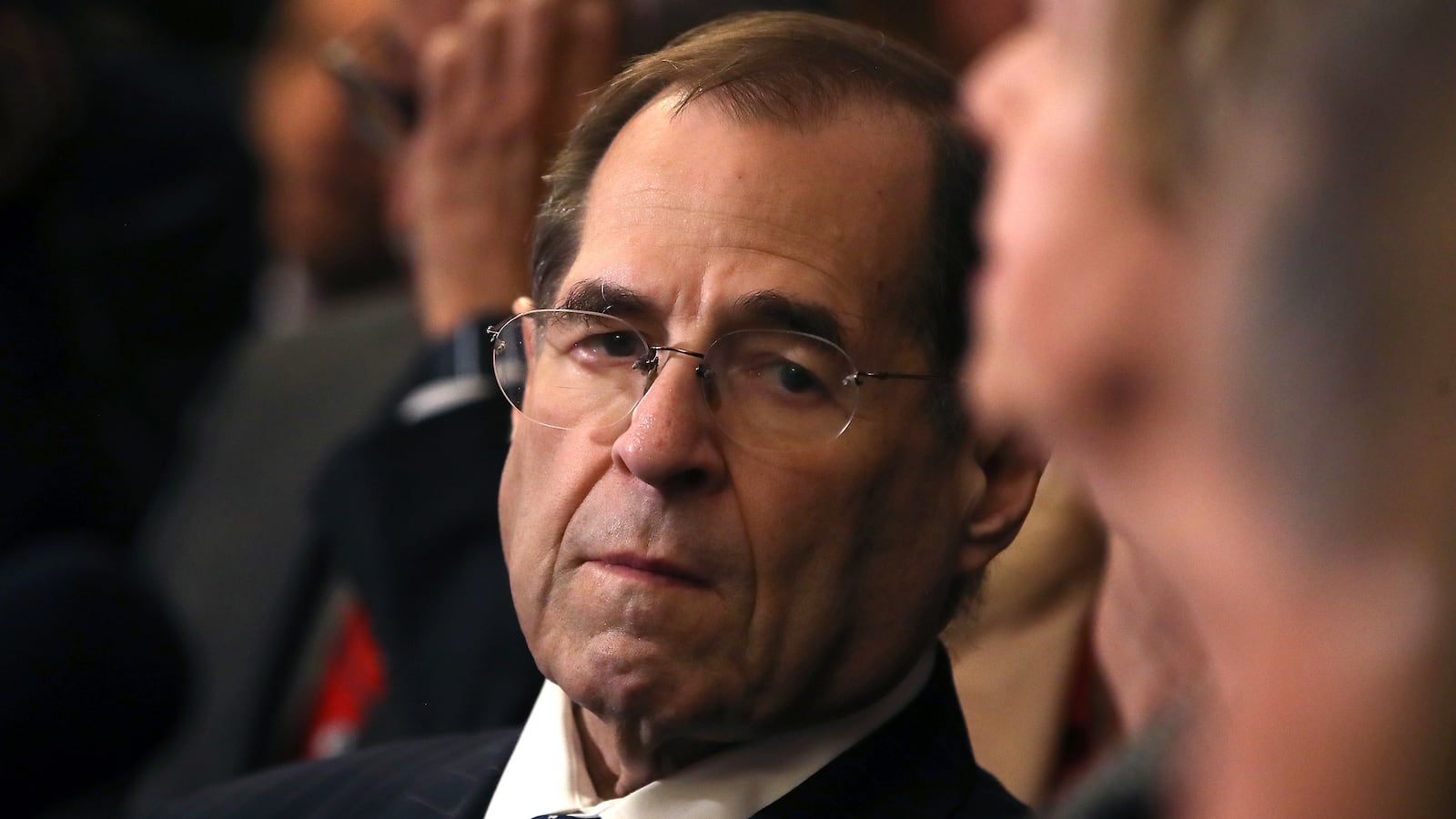House Judiciary Chairman Jerry Nadler (D-N.Y.) said on Friday that his committee was “in effect” conducting an impeachment inquiry, even as he shied away from using that exact phrase.
“The committee is exercising its authority to investigate all of these scandals and to decide what to do about them, which could include articles of impeachment,” said Nadler at a press conference. “Whether you call that an inquiry, or whatever you want to call that, that’s what we’ve been doing, and are doing, and will continue to do."
The appearance of Nadler and members of his committee was intended to amplify Democratic talking points after Robert Mueller’s testimony and to outline their next investigative steps. But that was overshadowed by questions over the prospects of impeachment. In addressing those questions, Democrats were as clear as they have been to date that the very purpose of their current oversight efforts was to determine whether to launch impeachment proceedings.
Since Mueller’s testimony on Wednesday, six Democrats have come out in favor of impeachment, including Rep. Katherine Clark (D-MA), the highest-ranking member of party leadership to do so. Currently, an estimated 100 members of the House back impeachment, and those who do have grown increasingly vocal that Democrats have to make a decision soon about whether proceedings will happen or not.
Nadler has dismissed talk of a September deadline on such a decision. And after admitting that there was little real daylight between what his committee is currently doing and what an impeachment inquiry would look like, the congressman sought to cast a wider aperture in describing his goals.
“If an impeachment inquiry is if you’re considering only impeachment, that’s not what we’re doing,” said Nadler. “We’re investigating all of this.”
Yet, members of the Judiciary Committee who also spoke on Friday freely talked about their efforts within the framework of impeachment.
“I’d say we are in an impeachment investigation,” said Rep. Jamie Raskin (D-MD). “As to the result of the investigation, it could lead to articles of impeachment, or it could lead to something else.”
During Friday’s press conference, it was announced that the Judiciary Committee was moving to file a court application in hopes of securing grand jury material in Mueller’s report so that, in Nadler’s words, they can have the strongest possible hand moving forward. Nadler also said the committee was prepared to sue to enforce a subpoena for testimony from Don McGahn, the former White House counsel who is viewed as a key witness for Democrats.
The success of those efforts could go a long way in determining whether Nadler continues to consider his work a de facto impeachment proceeding or a formal one. Earlier in the day, he laid down a marker that would cause him to be unequivocal about calling for articles of impeachment. If the White House were to defy court orders for information and testimony, he told CNN, “there would have to be an impeachment.”
As he navigates these tricky political propositions, Nadler also faces scrutiny from party leadership, which remains firmly on the side of slowing down impeachment talk. Speaker Nancy Pelosi (D-CA) reiterated in an earlier press conference on Friday that impeachment is not happening anytime soon. “We will proceed when we have what we need to proceed,” she said. “Not a day sooner.”






